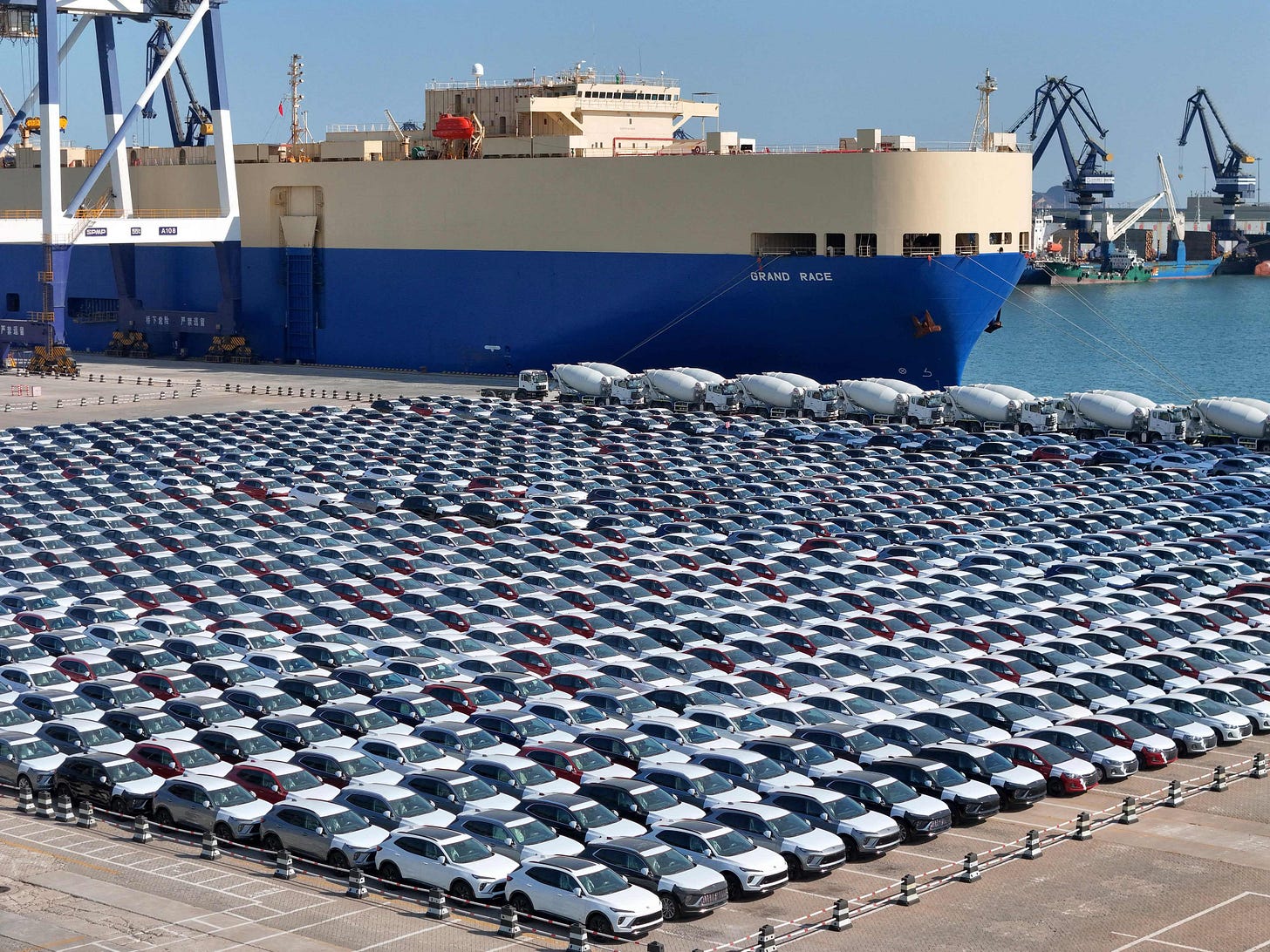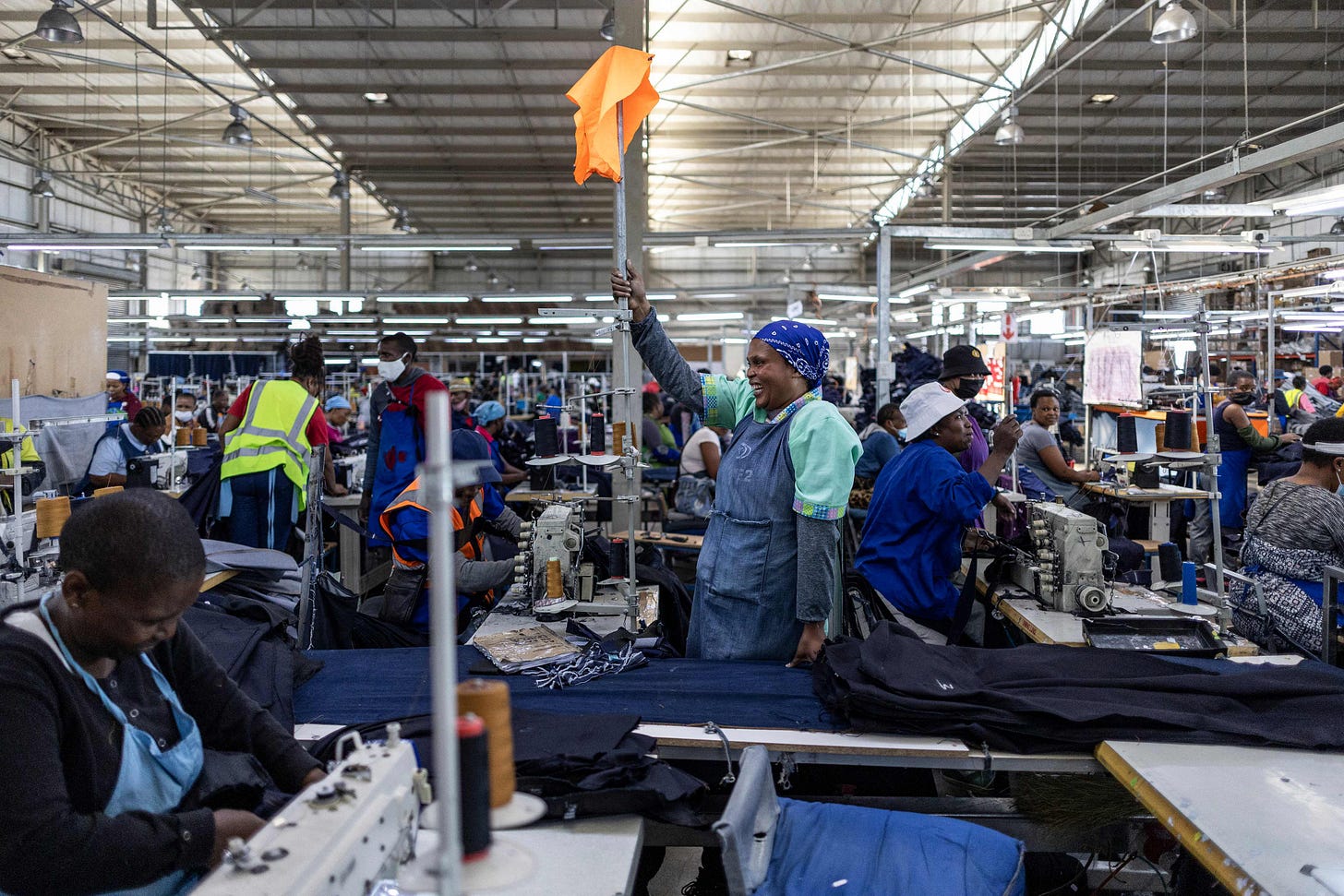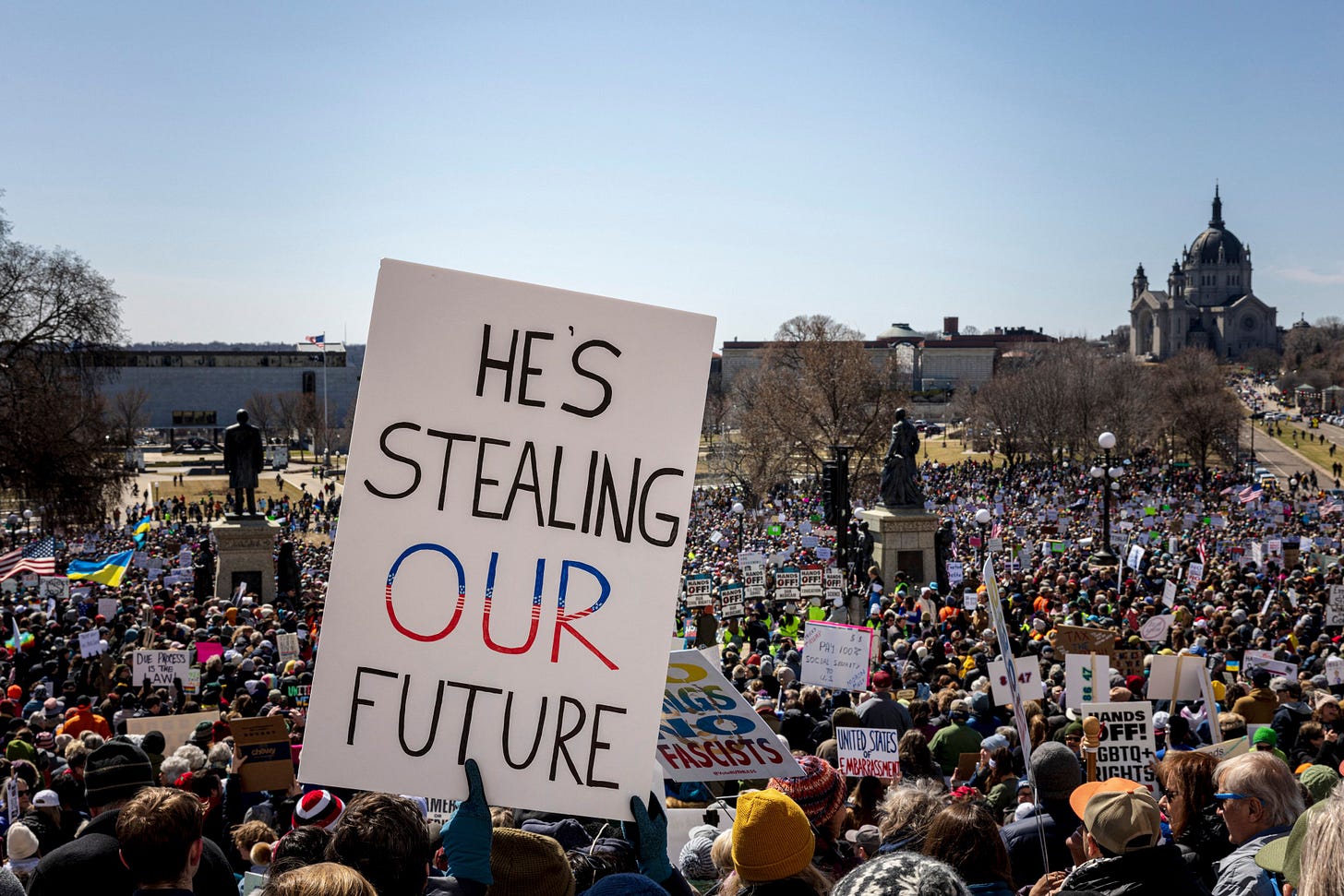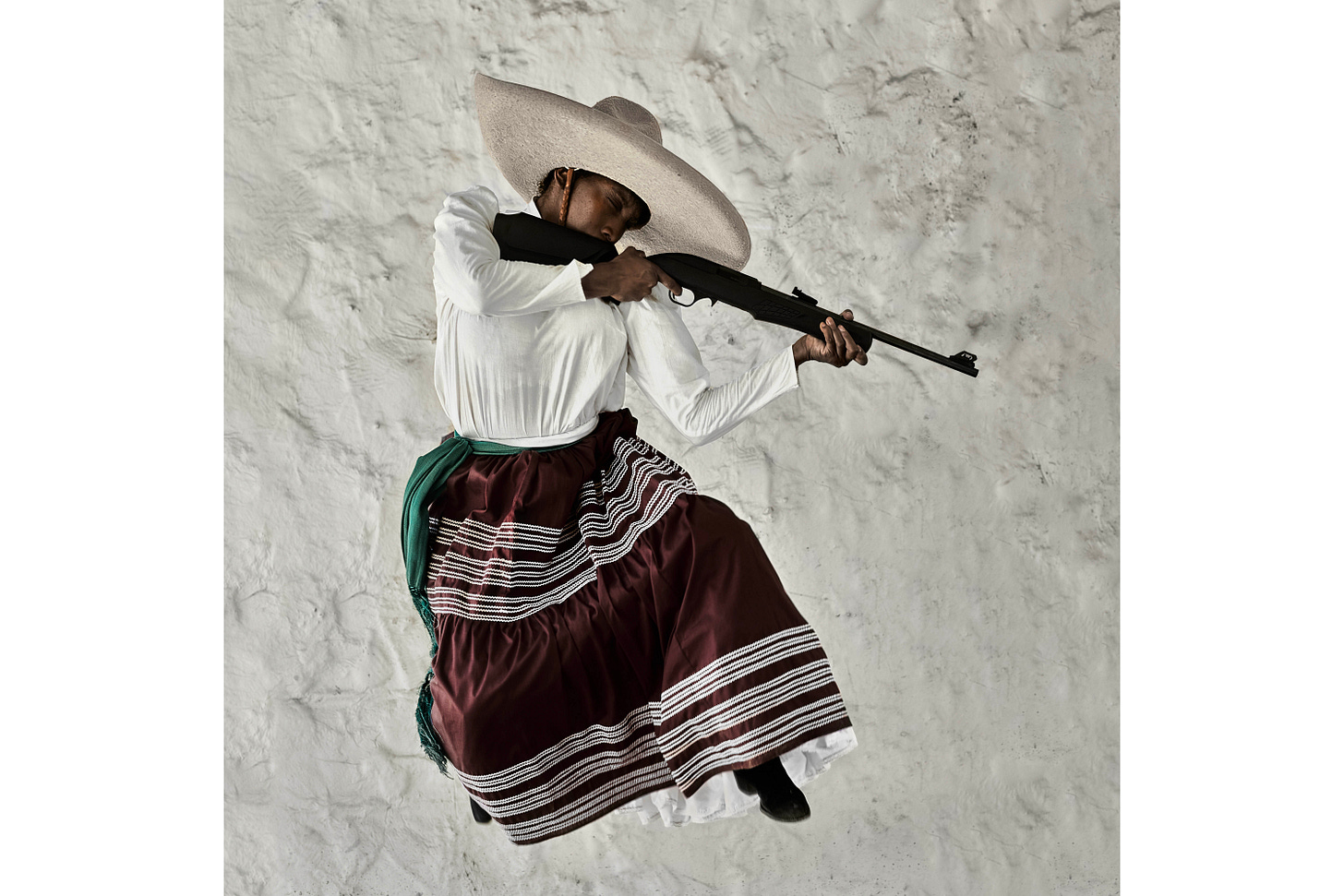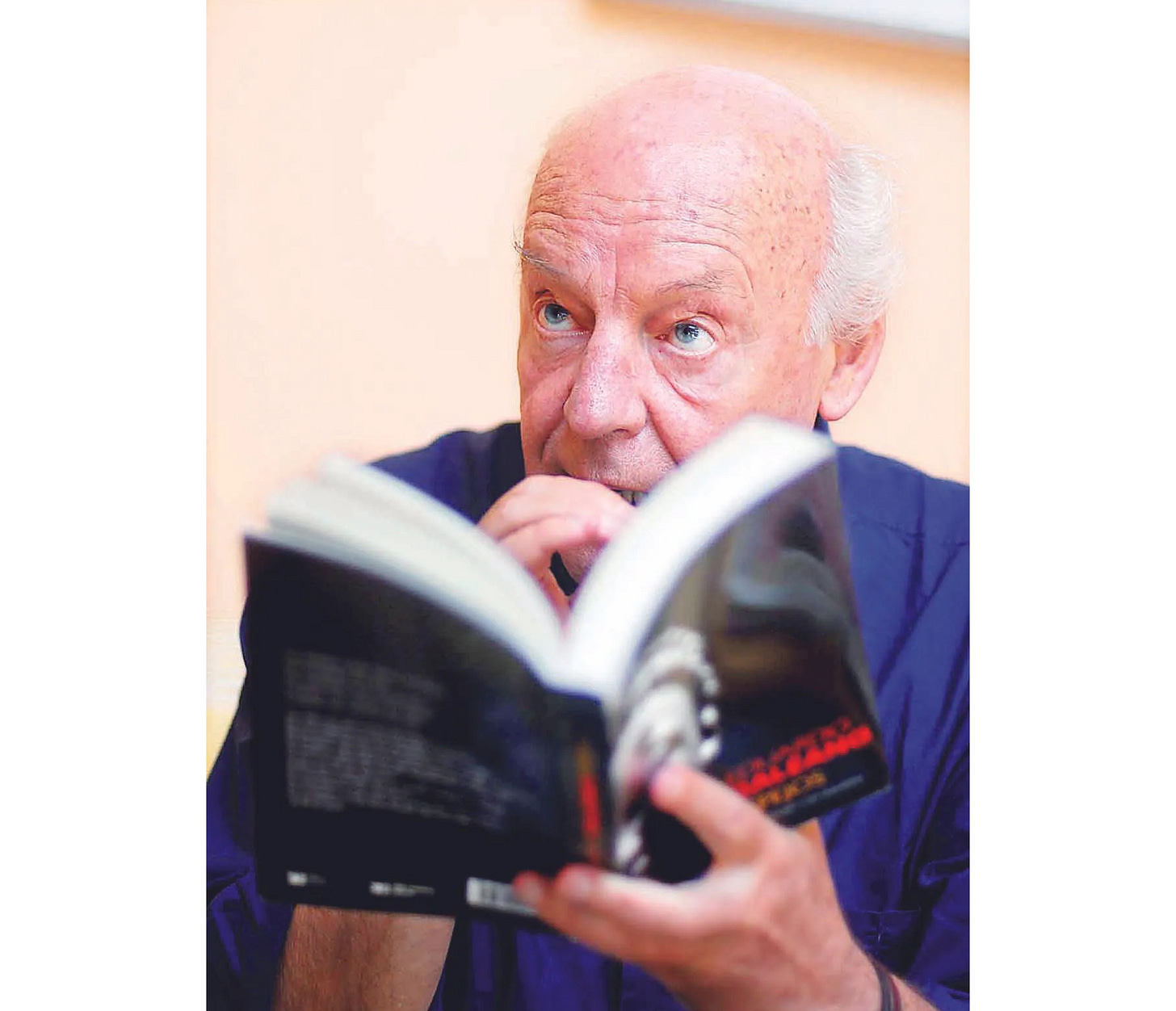11 Apr 25 | The Tariff Roller Coaster
Also in this edition: Photography as a “Political Weapon.” Eduardo Galeano, presente. Interview with Pedro Valtierra: “I am a street photojournalist.” Oaxaca: Wealth, Poverty, and Erosion.
Lea La Jornada Internacional en español aquí.
Note: We won't be sending a newsletter next week. See you on April 25th.
Trade war or end of the international order?
Donald Trump's tariff roller coaster accelerated in early April when he announced new tariffs on almost every country in the world, and then, a few days later, decided just hours after they went into effect to "pause" the economic measure. Few people know what will happen next, but already these intermittent economic measures have generated the greatest trade shock in world history and have called into question the architecture of global trade and finance that has been dominated by the US for nearly a century.
Mexico so far has avoided the most serious immediate consequences, and like other governments, businesses, and financiers, is now attempting to address the uncertainty created by Trump's actions. This trade war has raised new questions about the objectives of the US in this new era, and about Mexico's development strategy and its relationship with its main economic partner. Meanwhile, the Fourth Transformation continues to grapple with the consequences of four decades of neoliberalism.
As with many of President Trump's actions, not even his own advisors agree on the objectives of this new war. "This guy just doesn't give a damn," said a White House official familiar with Trump's stance on the matter. "Bad news? He doesn't give a damn. He'll do what he said. He'll deliver on what he promised during the campaign."
The consequences are immediate for almost every country in the world, and raise questions about the realignment of power in the so-called international "order." China warns it will fight Washington's hegemony to the bitter end, but many smaller countries with export-oriented economies are now seeking to bend to the will of the man who proclaims himself king of the world. More than 75 countries are seeking talks with the United States to reduce or eliminate tariffs, the White House claims.
Facing this new reality, Mexican President Claudia Sheinbaum called on the leaders of Latin America to come together to address these new challenges together during a meeting with Brazilian President Luiz Inácio Lula da Silva, Colombian President Gustavo Petro and other heads of state. Speaking at a gathering of the regional organization CELAC, Sheinbaum proposed they convene a summit focused on economic well-being, "to make greater regional economic integration a reality based on shared prosperity and respect for our sovereignties."
At home, President Sheinbaum celebrated that Mexico's diplomacy managed to avoid further tariffs (although there are new tariffs on some cars, beer, and aluminum cans), and said that Mexico will not respond for now with reciprocal measures. Despite Trump, trade between Mexico and the US is at an all-time high. Large sectors of the Mexican and Canadian economies depend on the United States and, as a result, both countries are among the most vulnerable large economies to pressure from their North American partner. As part of the Mexican response to the U.S. tariff wars, President Sheinbaum detailed 18 programs to strengthen Plan Mexico, her administration's roadmap for the economy and the well-being of Mexican families.
The government and her party are focused on negotiations to revise and extend the United States-Mexico-Canada Free Trade Agreement (USMCA). But Manuel Pérez Rocha questions whether the current approach to free trade benefits Mexico. He argues that the USMCA, like NAFTA, has largely transformed Mexico into an export platform for exploiting cheap labor, while weakening, for example, the Mexican automotive industry.
Pérez Rocha is not alone in suggesting that free trade alone is not the answer. “Various indicators have predicted this situation for years, and what Trump has done is simply reveal the chaos, bring it out of the closet, and expose it in broad daylight,” writes Víctor Toledo. He called for Mexico to focus on developing a “sustainable home” strategy at the local level. Energy, water, and food self-sufficiency, must be addressed on a local scale, along with recycling waste, emissions, and garbage. At the moment, however, Mexico is not on the path to self-sufficiency in grain production due to drought and water stress, and grain and oilseed production in Mexico is forecast to experience its worst decline in 25 years.
“The best defense against any tariff,” President Sheinbaum said at the launch of the government’s Harvesting Sovereignty program, is producing what is consumed in the country. Under this program, which is the first of the 18 initiatives in the agri-food sector, the government will offer credit to 300,000 small and medium-sized producers, and they expect to expand the program to reach 750,000 beneficiaries by 2030. But Luis Hernández Navarro warns that if we want to save the agricultural sector, more must be done and the government must modify many policies and increase the sector's budget.
“The goals of self-sufficiency and food sovereignty are essential for guaranteeing access to nutrients as a human right, and not as a commodity dependent on the ups and downs of international markets, which only respond to the pursuit of profit,” wrote La Jornada in an editorial. “Likewise, they are the pillars of any effort to combat climate change and build resilience to its effects, which is of maximum importance, even at a time when our main trading partner and the source of most of our agricultural imports has launched a tariff war that will increase prices and disrupt supply chains.”
The Quote
I believe we were born children of the days, because everyday has a story, and we are the stories that we live.
–Eduardo Galeano
In case you missed it
◻️ Photography as a “political weapon.” In Madrid, the 28th edition of the PhotoEspaña festival aims to remind us that the image is memory and rebellion, that it is a critical and transformative power, whether against the gray and sad Spain of the Franco dictatorship or the blood-soaked Chile of Augusto Pinochet.
◻️ Eduardo Galeano, presente. This master journalist, rescuer of the collective memory of the Americas, a historian who always had an eye for the everyday miracles that save the world–at least for a day, for a moment– left us lessons that are still fundamental references for new (and old) generations. Ten years after his passing, his work is more vital than ever. Commemorative events in Mexico and Spain will celebrate the life and work of Galeano, who contributed to La Jornada from its start, with his column "Ventanas," and later on with other articles.
◻️ Galeano in La Jornada. Our teacher and colleague here at the newspaper, Eduardo Galeano told us the stories of our own lives and adventures in his column, "Windows." For example, in "Bad Words," a girl questions the point of censoring words; in "The Goalkeeper," he narrates an encounter with a dissident CIA agent; and in "Memory," he tells of the search for a copper mine. These and many more were later published in his book, Voices of Time. He also shared essays on a wide variety of topics, from "The Hunter of Stories," to his calendar, "Children of the Days," to excerpts from his autobiography, to soccer, his main passion. His life served as a point of reference for his friends and us as his students, something that Joan Manuel Serrat, Elena Poniatowska, and the Zapatistas - as Luis Hernández recounts - recognized.
Rayuela on the tenth anniversary of his death:
Ten years after his passing, Eduardo Galeano is the best proof that writing is useful, when done well, and that journalism is worth it, when it is as committed and vast as he was.
◻️ Oaxaca: Wealth, poverty, and erosion. Iván Restrepo writes of the threats facing this territory blessed with invaluable flora and fauna; for being the state with the greatest biodiversity in the country, with virtually all microclimates; and for being home to so many ancestral communities, examples of culture and sensible management of natural resources.
◻️ Guerrero: Lack of progress in investigations into the Dirty War: The Commission for Access to the Truth, in its investigation into the Dirty War in the state of Guerrero, named many accused military personnel, but survivors and relatives of victims of forced disappearance from 1965 to 1990 said there had been no progress in the investigations into the Dirty War, reports Sergio Ocampo.

◻️ Pedro Valtierra: “I'm a street photojournalist. That's where the gossip is, and life. I don't like being called a teacher or an artist,” says Pedro Valtierra in an interview with La Jornada, of which he is a co-founder. The exhibition "Volver a la Tierra del Quetzal " includes images from representative moments of Valtierra's 50-year career as a photographer in Guatemala, Cuba, El Salvador, Mexico, and Nicaragua.
▶️ VIDEO
◻️ Stopping Hate Speech: Antonio Guterres. On the anniversary of the 1994 genocide in Rwanda, the United Nations Secretary-General declared that we should take measures to stop hate speech, combat the divisions and discontent that lead to violence, defend human rights, and ensure accountability.
◻️ Abbas Kiarostami: Confessions of a Filmmaker. An interview, never before published in Spanish, with one of the most influential directors of post-revolutionary Iran. Abbas Kiarostami is the director of films such as Close-Up, Taste of Cherry, and The Wind Will Carry Us, for which he won the Palme d'Or at Cannes and the Special Jury Prize at the Venice International Film Festival.



